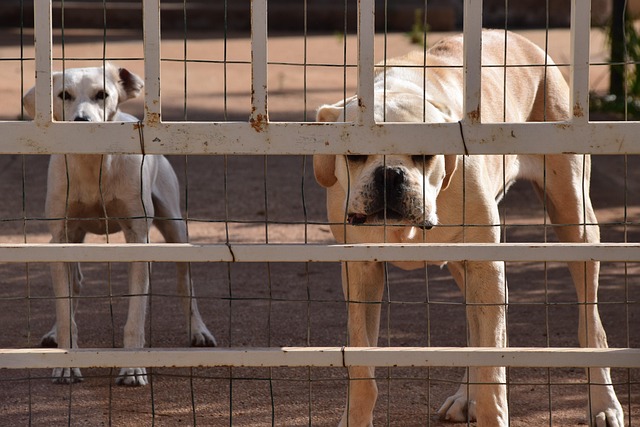In high-risk regions, providing VIP protection for diplomats poses unique challenges including political instability, civil unrest, and threats from extremist groups or organized crime. Specialized security services are crucial for mitigating these risks in dynamic urban environments with sensitive cultural dynamics. These teams balance discreetness, low visibility, robust security, and the diplomat's need for mobility while responding swiftly to emerging threats. Through advanced training, scenario-based simulations, and leveraging technology, they ensure diplomats' safety even in challenging environments. Success stories of VIP protection measures globally enhance safety for high-profile individuals like ambassadors.
In the intricate world of diplomacy, securing high-ranking officials in volatile regions presents a unique challenge. This article explores specialized security services designed for diplomats facing heightened risks. We delve into the critical role of dedicated diplomatic security teams and their advanced training to navigate unpredictable threat landscapes. Through tailored risk assessment and successful global case studies, we uncover strategies ensuring VIP protection for diplomats, highlighting the importance of proactive measures in high-risk regions.
Understanding the Unique Challenges of VIP Protection in High-Risk Regions
In the realm of high-risk regions, providing VIP protection for diplomats presents a unique set of challenges that go beyond standard security measures. These areas often experience political instability, civil unrest, and varying levels of threat from extremist groups or organized crime. Diplomats, as high-profile individuals representing their nations abroad, require specialized security services tailored to mitigate these risks effectively.
The dynamic nature of high-risk regions necessitates agile and adaptable protection strategies. VIP protection teams must be adept at navigating labyrinthine urban environments, dealing with sensitive cultural dynamics, and responding swiftly to emerging threats. Additionally, they need to ensure the discreetness and low visibility of their operations while maintaining a robust security posture, balancing the diplomat’s need for mobility with stringent safety protocols.
The Role and Responsibilities of Specialized Diplomatic Security Teams
Specialized diplomatic security teams play a pivotal role in safeguarding diplomats and high-ranking officials in volatile and high-risk regions worldwide. Their primary responsibility is to provide VIP protection for diplomats, ensuring their safety during travel, meetings, and daily activities. These teams are comprised of highly trained professionals equipped with advanced skills in threat assessment, surveillance, close personal protection (CPP), and crisis management.
They operate discreetly yet aggressively, anticipating and mitigating potential risks. Their expertise includes conducting thorough risk assessments, implementing robust security protocols, and employing state-of-the-art technology to monitor and protect their charges. Additionally, these teams collaborate closely with local law enforcement and intelligence agencies to maintain a comprehensive security network, ensuring diplomats receive the highest level of protection in even the most challenging environments.
Advanced Training and Preparedness for Unpredictable Threat Environments
In the intricate world of diplomacy, ensuring the safety and security of VIPs, particularly diplomats in high-risk regions, is a specialized task that demands exceptional preparation. Advanced training programs are meticulously designed to equip security personnel with the skills needed to navigate unpredictable threat environments. These immersive simulations go beyond standard protocols, fostering an adaptive mindset crucial for handling dynamic situations where threats may evolve rapidly.
The focus on VIP protection for diplomats includes rigorous scenario-based training, crisis management drills, and cultural sensitivity education. By exposing security teams to diverse scenarios, they gain proficiency in identifying and mitigating risks specific to each region. This proactive approach ensures that every potential threat is anticipated, allowing for swift and effective responses, thereby enhancing the overall security posture of diplomatic missions.
Tailored Risk Assessment and Mitigation Strategies for Diplomats
Diplomats operating in high-risk regions face unique challenges that demand specialized security services and tailored risk assessment strategies. A comprehensive approach begins with a thorough understanding of local political climates, potential threats, and cultural nuances. This involves detailed background checks, threat intelligence gathering, and continuous monitoring to identify emerging risks. By analyzing historical data and leveraging advanced analytics, security experts can predict and mitigate high-risk scenarios effectively.
VIP protection for diplomats is not just about physical security; it’s a multifaceted strategy that includes contingency planning, crisis management, and secure communications. Specialized teams employ low-profile tactics, conduct risk assessments at diplomatic residences and travel routes, and provide real-time intelligence to ensure the safety and well-being of high-value personnel. These strategies are designed to minimize disruption to diplomatic missions while maximizing protection in high-risk environments.
Global Case Studies: Successful Implementation of VIP Protection Measures
In recent years, several global case studies have demonstrated the successful implementation of VIP protection measures for diplomats stationed in high-risk regions. These initiatives have been pivotal in ensuring the safety and security of high-profile individuals, such as ambassadors and other senior diplomatic personnel, who often operate in volatile environments. For instance, in countries experiencing political unrest or where there’s a heightened risk of terrorism, specialized security services have been deployed to safeguard diplomats.
One notable success story involves a major international organization that implemented a robust VIP protection program for its diplomats in the Middle East. Through strategic planning, advanced surveillance techniques, and highly trained security personnel, they were able to mitigate risks effectively. This not only included physical security but also comprehensive risk assessment and contingency planning to address potential threats. Such successful implementations have set benchmarks for providing VIP protection for diplomats worldwide, emphasizing the importance of tailored strategies to navigate complex security landscapes in high-risk regions.
In light of the unique challenges faced by diplomats in high-risk regions, specialized security services are indispensable. By understanding these challenges, deploying dedicated diplomatic security teams, and implementing tailored risk assessment strategies, we can ensure the safety and effectiveness of VIP protection measures. Advanced training and preparedness are key to navigating unpredictable threat environments, as evidenced by successful global case studies. Investing in these specialized services is crucial for fostering secure international relations and protecting our diplomats’ well-being.
